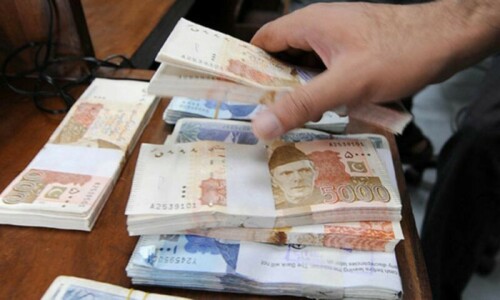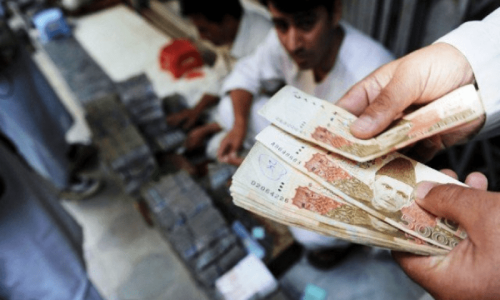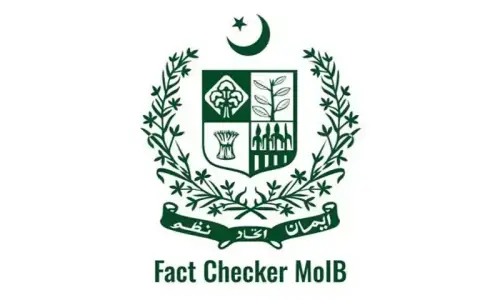THE FBR had been publishing its Tax Expenditure Report since 2020. Each report estimates the ‘tax expenditure’, ie, the tax foregone or the revenue loss because of the built-in tax concessions and exemptions in our federal tax laws. Such concessions are legally doled out to various power groups in our country. These reports do not disclose the identities of the beneficiary groups.
According to the latest report (for 2023), based on the data of fiscal year FY22, Rs2.24 trillion was lost due to tax concessions at the federal level. This tax loss was 36.4 per cent of the total FBR collection in FY22, equivalent to 3.4pc of GDP. This figure did not cover loss estimates emanating from tax concessions in provincial tax laws. Provincial revenue collection agencies should also start estimating their tax expenditures.
What do these losses have to do with our public debt? Our gross public debt could have been decreased by the amount of these expenditures each year in the past and it would have been much lower compared to the Rs62.9tr in June 2023 (74.8pc of GDP). The federal tax expenditure each year is close to 3pc of GDP. Had these concessions been removed four years ago, our gross public debt would have been 12 percentage points lower than 74.8pc. This, of course, is a naïve deduction as the groups getting concessions won’t have it any other way!
No matter how simplistic the above example seems, it is a precise indication of the necessity of reforms, not only in the spheres of federal and provincial tax laws, but also in various sectors of the economy. Thorough research will show the utmost necessity as well as political difficulty of implementing these reforms. Such research was undertaken by Dr Hafeez Pasha and published in the UNDP’s Pakistan National Human Development Report 2020 that focused on ‘The three Ps of Inequality: Power, People, and Policy’.
The fifth chapter of the report is about the political economy of inequality. Unlike the FBR tax expenditure reports (extremely useful to researchers), UNDP’s report estimates resource transfers to the rich to be not only on account of tax concessions, but also deliberate political and economic concessions. This report identifies the seven powerful groups in our country that get privileges and access to resources, which creates not only inequality in our country but also constrains economic growth and potential, besides giving rise to frequent economic crises. The report estimates this resource capture at over 7pc of GDP in FY18.
Let us hope that reforms succeed in our strangely hybrid, pseudo-democratic political system.
These powerful seven groups are broadly identified in the UNDP report as the feudal class, corporate sector, exporters, large traders, high-net-worth individuals, the military establishment, and SOEs.
Our economic system serves their interest through concessions in the tax system, the provision of cheaper inputs, higher output prices, and preferential access to land, capital, and infrastructure. Economic incentives directed towards these groups are not helping but retarding the productivity of our economy. Research done at the Pakistan Institute of Development Economics shows that it is not only growth but also the total productivity factor of our economy that is on the declining path in the long term. This is extremely alarming.
What does this imply? While this clearly establishes the urgent need for reforming our economy, unfortunately, it also shows the near-impossibility of implementing these reforms due to existing political structures and the power exercised by the seven privileged groups. International research on the political economy of structural reforms shows that these reforms could lead to large distributional consequences.
For our country, this means that reforms will divert resources from these seven groups to those outside them (the small and medium non-corporate sector, the common people, and poor segments). Therefore, it would be unlikely for the government to have support from the seven groups, notwithstanding the lofty (but empty) rhetoric of the authorities.
According to recent research on structural reforms, “Democracy and inclusive political institutions are often considered positive factors in generating support for more liberalised economic reforms in product, labour, and financial markets”. It is strong and popular governments that are able to garner support for structural reforms. Let us hope that reforms succeed in our strangely hybrid, pseudo-democratic political system and we become a case study of a political outlier that successfully implemented structural reforms.
In the absence of reforms in the near future, our country will be left with no option but to obtain a few billion dollars under a programme that will create a semblance of initiating economic reforms, without actually succeeding. The reason we failed in the past is that we never really desired to implement these reforms. Reforms are always difficult but doable as the experience of several countries has shown.
Instead of hearing something from the authorities about their desire to undertake these reforms, we only hear non-desirability expressed in sentences like ‘we really cannot do without these reforms’. This is a meaningless sentence as there is no embedded demand for reforms! Reforms do not get implemented by themselves. We seem to pray for reform like manna from the heavens. As the old proverb goes: ‘If wishes were horses, beggars would ride’. Good luck, Mr Finance Minister, you seem to be the lone reform rider.
Returning to the tax expenditure (tax privileges) of close to 3pc of GDP, and the complete cost of privileges at 7pc of GDP, we can say that this cost amounted to Rs5.9tr in FY23 and is likely to surpass Rs6.8tr in FY24 due to inflation. Irrespective of the future success or failure of our wished-for structural reforms, we do need a medium-term IMF programme.
Our debt, while suffering from very large liquidity problems, can be sustained for a few years on the successful mobilisation of foreign exchange from the IMF, World Bank, the Asian Development Bank, the Islamic Development Bank and friendly countries. This is what we desire (not reforms), and this is what we’ll get, as in the past, until a political structure conducive to reforms falls on us from the heavens.
The writer is a former deputy governor of the State Bank of Pakistan.
Published in Dawn, April 16th, 2024































